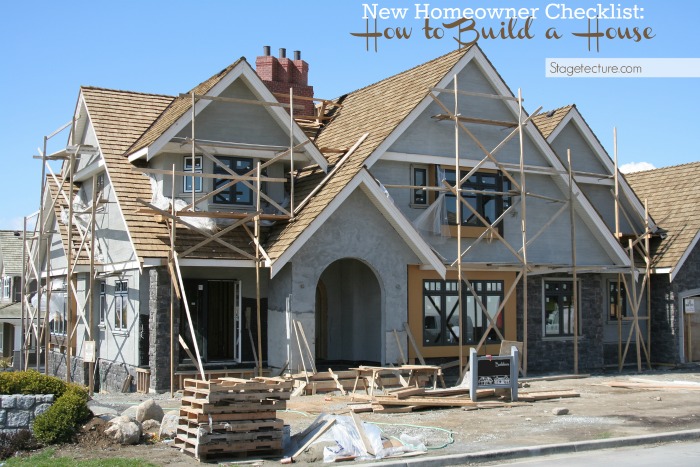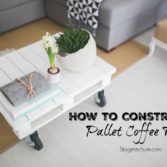If you’re tired of renting an apartment or living in an older home and are ready to build a house, there are several steps you should consider first. There is a sense of satisfaction and customizability when you can build a house from scratch. Take a look at our helpful home building checklist items to complete as you start the process to build your own house.
New Homeowner Checklist: How to Build a House
1. Find Land to Build a House:
If you do not already own land, you need to buy a plot before you can start building. You can pay for the land with a bank loan, cash, or buy from a seller who provides owner financing. Purchasing land with a land loan lets you take it off the market so that other people cannot purchase it before you do. You can search for land online or you can look through your city’s land inventory, or you can visit a real estate agent that has a listing of clear land properties in your area. This Old House features a good article on what to look for when buying vacant land.
2. Choose a Home Building Project:
You need to choose a home building project to make the process easier. Although you might need to customize the project plan for a particular county or state, getting one will help you greatly.
We like these tips from About.com on the steps involved in building a house from the beginning. While different homeowners will have different experiences, these tips will steer you on the right track.
3. Choose House Plans that you Love:
Choosing house plans can be the most fun and most emotional side when you want to build a house. You can find some great house plans online. Just open Google and type in ‘architect’ or ‘house plans’ for your local region and you will see many useful results. If you opt for a stock house plan from the internet, you might still have to make some adjustments to meet your local building practices and codes.
Unless you are an architect, you should not do this on your own. You need to hire a local architect to make the necessary modifications. Once you select the house plan that meets your needs and budget, you can start accepting offers from builders.
4. Decide if you will be an Owner Builder or Hire a Builder
The goal of choosing to be an owner builder is to save money. If you do it correctly, you can end up saving a lot of money. Before deciding to be an owner builder, you should figure out whether you have the ability to manage contractors.
You can run into other problems as an owner builder: the need to borrow money, construction cost overturns, depleting your personal savings, foreclosure, and the need to refinance a construction loan.
If you have never acted as an owner builder before, you should consider hiring a trustworthy builder to supervise your work for a smaller fee than usual. This supervisor should help you with subcontract management and cost breakdown on an as-needed basis. If a contractor gets out of hand, you can call the supervisor to handle the situation.
Ask your friends for builder references. If you hear the same name more than once, then you have found the right person. Make sure that you shop around until you find a builder with the most honest and reputable background. The builder that you hire should have been operating in your area for a minimum of 3-5 years.
5. Know the Estimated Cost Breakdown of the House
You need to know the breakdown of each cost of constructing your home: foundation, plumbing, painting, electrical, and lumber. The builder that you hire should fill out a form that shows you the exact cost of building your new home. You should not over or underbid any line item because this might cause problems later.
Use accurate numbers from actual bids and include a 5 percent contingency for cost overruns. A good builder will send your house plans to their contractors to get specific bids on each main item. If you plan to purchase a building kit, you need to make sure that it is from a reputable seller such as Cottage Depot.
6. Consider Construction Insurance Before your Build a House
Before you build your house do your homework into construction insurance. You need three types of insurance to build, including workman’s compensation, general liability, and course of construction. The latter covers fires, replacement cost, vandalism, and builder’s risk. General liability is a broad form of liability endorsement or a comprehensive general policy. You only need workman’s compensation insurance if your builder has employees.
Receive Stagetecture's Daily Lifestyle Ideas
FREE - Daily emails with recipes, home decor, D.I.Y, and lifestyle tips! : ) Who doesn't need help?







Leave a Reply